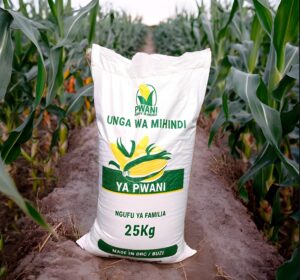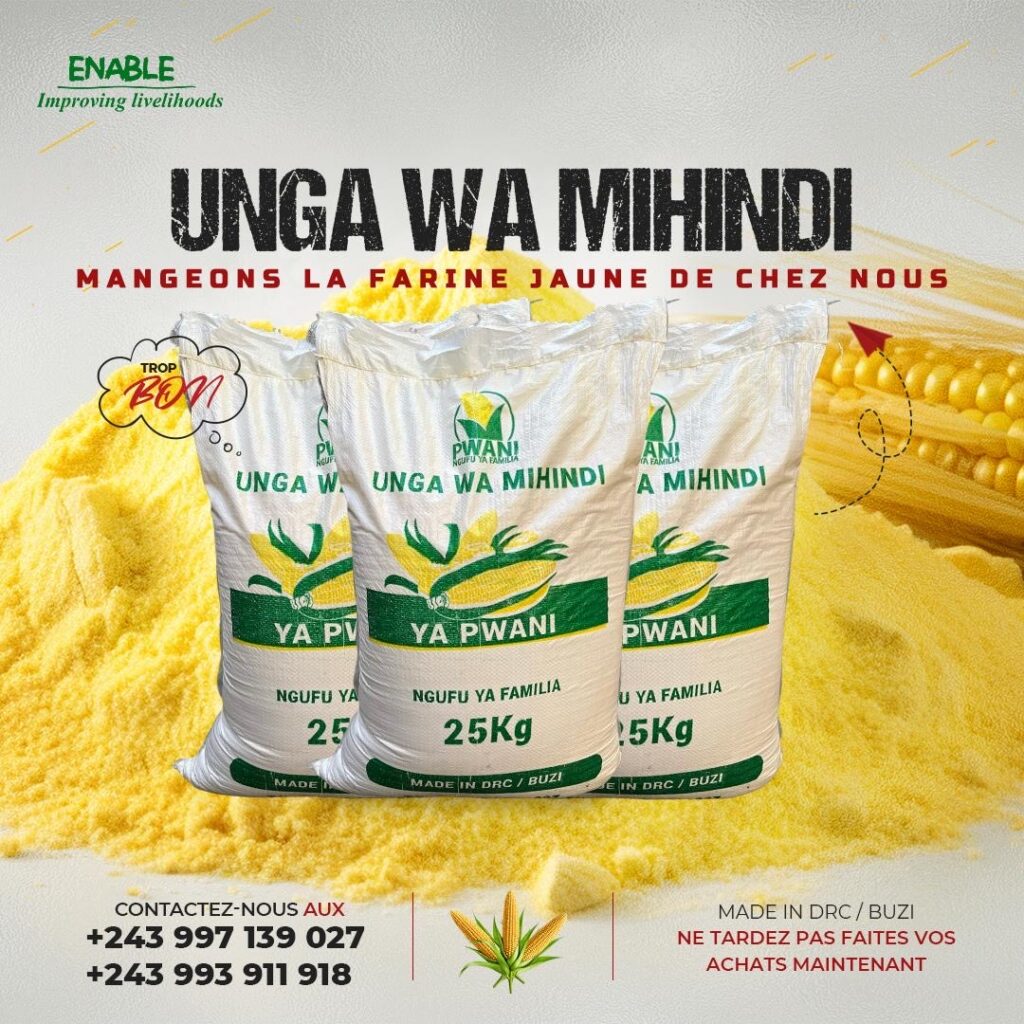Project Background Summary
The ENABLE RDC Block Farming Project is a comprehensive agricultural development initiative launched in the Minova region of Kalehe territory, South Kivu Province, in the eastern Democratic Republic of Congo (DRC). This region, though agriculturally rich, has been severely affected by decades of armed conflict, displacement, and chronic food insecurity. The project was conceived as a response to these challenges, aiming to revitalize local agriculture, empower vulnerable populations, and strengthen food systems through a structured and market-oriented approach.
Block Farming Model
At the heart of the project is the block farming model, which organizes smallholder farmers into cooperative production units. This model allows for the efficient distribution of agricultural inputs, such as improved seed varieties (maize Sam4vita, beans HM21, and soybean Imperial), and provides access to technical training, credit for inputs, and post-harvest support. The project specifically targets internally displaced persons (IDPs), host families, and other vulnerable groups, ensuring inclusivity and equity in access to resources.
Implementation and Value Chain Development
The project is implemented by ENABLE RDC in partnership with AALI, and it integrates a full agricultural value chain—from seed distribution and cultivation to processing and commercialization. A key innovation is the establishment of a local milling unit that produces branded maize flour (“YA PWANI”), which is sold in local markets and urban centers like Goma and Bukavu. This not only boosts local food availability but also creates income-generating opportunities for farmers and youth.

Resilience and Adaptation
Despite the outbreak of renewed violence by the M23 rebel group, which disrupted road access and posed logistical challenges, the project demonstrated remarkable resilience. The team adapted by using Lake Kivu for transport, maintained strong community engagement, and continued field operations through a decentralized network of agronomists and mobilizers. As a result, the project successfully cultivated 50 hectares, engaged 377 households, and harvested 75 tonnes of maize in its initial phase.
Capacity Building and Sustainability
Beyond food production, the project emphasizes capacity building, especially for youth and women, through training in mechanization, sustainable farming practices, and entrepreneurship. It also promotes environmentally responsible agriculture, including crop rotation, integrated pest management, and water-efficient irrigation.
Conclusion
In essence, the ENABLE RDC Block Farming Project is not just about growing food—it’s about building resilience, restoring dignity, and laying the groundwork for long-term rural development in one of the DRC’s most fragile regions.
‟Yes, we can”

